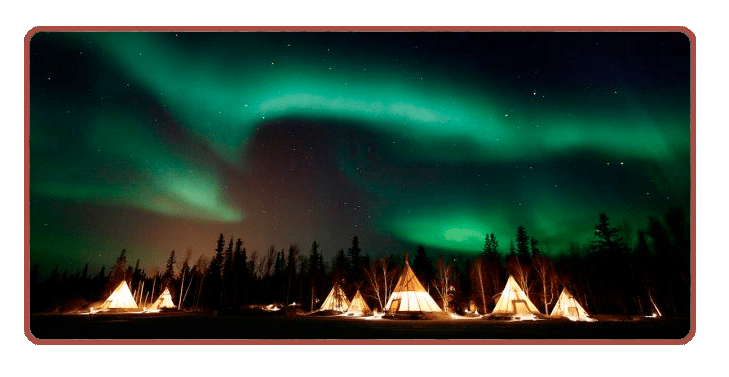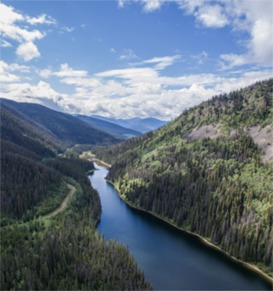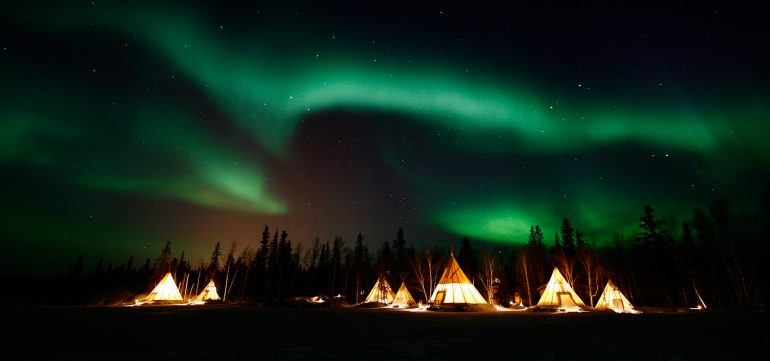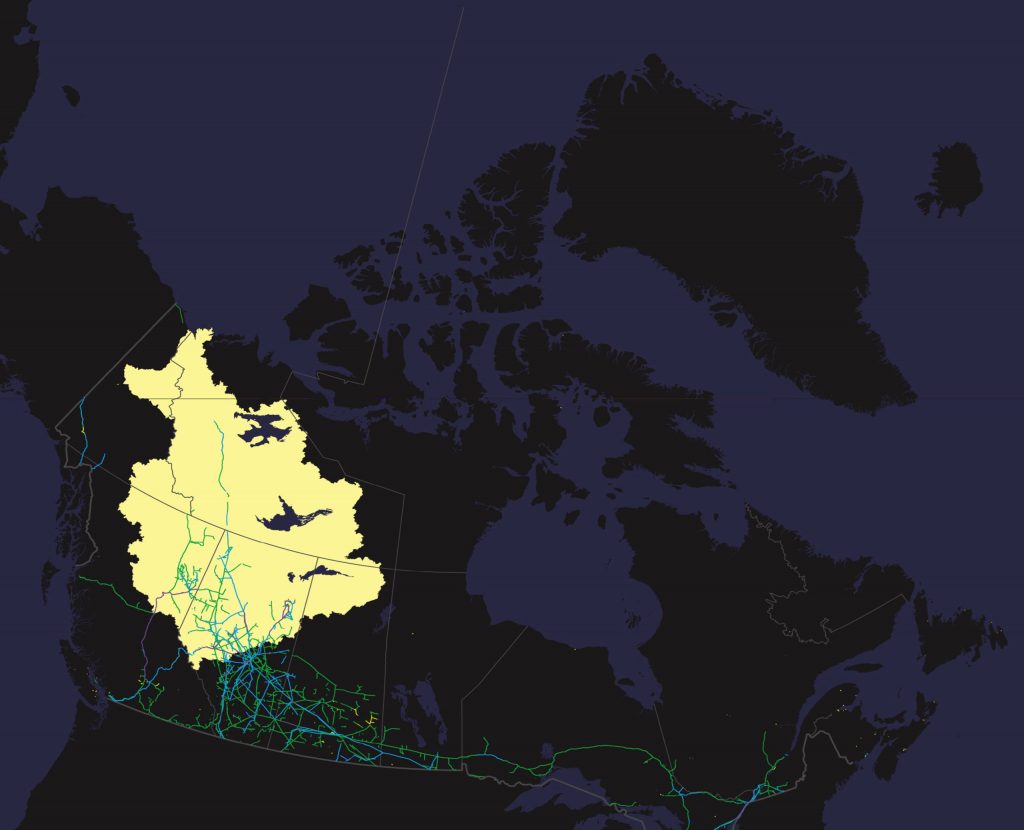Dreaming the Future

Dec 13, 2017—Yellowknife, NWT: This past summer, IndigenEYEZ traveled to the Dechinta Centre for Research and Learning – an inspiring Indigenous bush university where remarkable things are happening. The experience ignited our passion for creating a similar land-based learning space in the interior of BC.
Learning on the Land: Dreaming the Future

For several years now, IndigenEYEZ has been part of the Decolonizing Water Project. This past August, project partners met in Yellowknife at the Dechinta Centre. As soon we left the plane, we were welcomed by the water – the lake that surrounded us was so healthy and clean that we could walk straight over and drink from it. For those of us from the south, this was deeply moving.
One of the central purposes of IndigenEYEZ is to empower youth while connecting them to their ancestral memories. Our Elders and Knowledge Keepers continually remind us that we must focus on upholding our responsibilities to the land and not just solely on our rights to it. This kind of connection can only happen on the land itself, which is why IndigenEYEZ hosts a number of land-based camps for youth every year.
It is a dream of our organization to see a permanent location established where we can foster a respectful, collaborative relationship with the land by strengthening our roots in one place. This dream location would be away from daily life distractions, free from cell phones, computers, and some of contemporary life’s more challenging realities. It would be a place where our youth can connect with the land and have the freedom to dream. At Dechinta, we found an example of exactly this sort of place – and it is as wonderful as we imagined! Amazingly, as well as being a place where our people can have culture and land-based learning opportunities, Dechinta is also an accredited post-secondary institution.
The Decolonizing Water Project is working with Indigenous communities in Northern and Western Canada to create tools to support Indigenous water co-governance. Northern Canada has the third largest oil and gas reserves in the world. Resource exploitation has intensified in this region, and sustainable water governance has become a critical issue, particularly for Indigenous communities grappling with access to safe drinking water, water quality, and related livelihood and health issues.
The goal of Decolonizing Water, which is also called the Sustainable Water Governance and Indigenous Law Project, is to create a prototype of an Indigenous-led, community-based water monitoring initiative that is rooted in Indigenous laws, and is a practical expression of Indigenous water governance.
A way in which this level of holistic leadership would benefit the greater good of people in BC is the recent, and controversial, decision by the government to go ahead with the Site C hydroelectric dam. This decision will displace farmers and submerge Indigenous lands by flooding 5,500 hectares of the Peace River valley near Fort St. John in Treaty 8 territory, the traditional lands of the Dene Tha’, Beaver and Métis. The West Moberly and Prophet First Nations have said they will seek a court injunction to halt construction and begin a civil action. (source)
The principle investigator with Decolonizing Water, Karen Bakker from the University of British Columbia, asked IndigenEYEZ to take part in this Water Bush Camp in order to fully experience the project. Water Bush Camps are place-based and reciprocal learning workshops. Decolonizing Water has made great strides since the visionary spark in 2015 when Caleb Behn, Karen Bakker, and IndigenEYEZ Program Director, Kelly Terbasket, met for the first time and the idea for the Decolonizing Water Research Project sparked into life.
There were many passionate people who have dedicated their lives to water at the bush camp at Dechinta. Young people who are studying water, doing their undergrad degrees, and also masters and doctorate studies were so inspiring. They instilled much hope for the contribution that IndigenEYEZ wants to make to this important work.

Most of the people involved in the Decolonizing Water Project are lawyers, law students, university professors, and people who are doing research on water governance. Decolonizing Water has a very impressive list of team members (see full list here) and research partners including: UBC, UVIC, Emily Carr, Stanford, Duke, U of T, McGill, Northwest Indian College. The project is supported by the Social Sciences and Humanities Research Council.
IndigenEYEZ is a rapidly growing charity that is connected to individuals, people, and Nations, as well as government, educational institutions, and international non-profits. One of the complaints that Program Director Kelly Terbasket often hears is that there is too little connection being made between academia and grass roots work on the land. Well, that connection is exactly what is happening with this project!

Being in the north has a certain magic. On one particular night, it was as if the northern lights were confirming that we are on the right path. Some of the camp participants were discussing how best to engage leadership in water governance while acknowledging that leadership is often stuck in colonized ways of operating and there are many barriers to moving forward. The northern lights danced as we spoke. We shared the need to work with youth who are passionate about governance and how to best support, mentor, and champion them while ensuring that we provide them with the skills they want and need. Just when we said that, the northern lights showered down with a huge burst of vibrating color. It was like the energy of the night sky was in synergy with our words.
IndigenEYEZ was initially asked to be part of Decolonizing Water to support youth and community engagement. That phase of the journey will be coming soon. IndigenEYEZ is fully committed to this project and has started fundraising and spreading the word. Next fall, we will take a group up north to witness firsthand the magic that is Dechinta and to spread our dream of making this magic come to BC.

To learn more about the Sustainable Water Governance and Indigenous Law Research Project visit www.DecolonizingWater.ca or checkout “Fractured Land,” a powerful documentary about Caleb Behn’s work.
For an example of powerful water governance work taking place in BC, read the Syilx Nation Siwɬkʷ (Water) declaration .

